
My journey to offshore banking mastery started in the world’s greatest hedge fund of the Jewish community. We’re talking about a place where only the best of the best came to play, and I was the one they trusted – big time.
I saw firsthand how the smartest clients made their moves, bringing in the big bucks from overseas, right into our fund. And let me tell you, we were huge – when we hit that billion-dollar mark, we didn’t just celebrate, we expanded to the Caymans.
Back in the early 2000s, the internet was nothing like today. If you wanted to learn about offshore banking, you couldn’t just click around – you had to know the right people. And the lawyers who knew, they kept it close to their chests, charging unbelievable fees. But I’m not one to be stopped by gatekeepers.
Then there was Dave. This guy was something else – showed up in a Lamborghini with diplomatic plates. I said, “Dave, who’s ever seen a diplomatic Lamborghini?” Turns out, he was an honorary consul because he was that good, setting up more companies in the Virgin Islands than you could believe. He taught me everything – and I mean everything – about offshore banking.
Dave’s no longer with us – a huge loss, but his legacy is right here in this guide. I’m giving you the ultimate guide, the very best of the best, because that’s what you deserve.
If you’ve got questions, think of me as your personal hotline to offshore banking success. Let’s make your financial portfolio great.
Going Global: Think Big, But Play By The Rules

Globalism? It’s not just a buzzword. Our world’s getting tighter and tighter. Big businesses? They’re reaching out, going global. And let me tell you, there’s a good shot you’ll want to move your money overseas someday.
Maybe you’re jetting around for business, maybe you’re dreaming of a beach retirement, or maybe you just want to play it smart with currency diversity. This guide iss your starting point. I’m no financial guru, but you need to know your choices to make the best ones. That’s what we’re doing here – giving you the big picture on international banking. With this, you’ll be armed and ready to dive deeper and tailor-make decisions for your unique situation.
Crossing Borders? Know The Rules
Moving money internationally? It’s not a free-for-all. There are rules, lots of them. You’ve got to play it straight – respect the tax laws of your home turf and wherever you’re thinking of banking. No funny business, no dodging taxes or hiding your stash. Slip up? It’ll cost you – big fines, loss of your money, and maybe even some time behind bars.
One Size Doesn’t Fit All
Remember, everyone’s different. Your story, your needs, they’re one-of-a-kind. For the latest, most precise advice tailored just for you? Always chat with a top-notch, certified lawyer. This guide? It’s a ultimate guide, not gospel. No legal or money advice here. Just solid info to get you started on your global journey.
Experience the World, Cash-Ready
Traveling overseas is an unmatched experience. Mark Twain nailed it when he said, “Travel is fatal to prejudice, bigotry, and narrow-mindedness.” But to truly relish the journey? Be prepared. The foundation of a smooth trip? Ensuring your money is within reach. Life throws curveballs, like unexpected expenses. And common travel hiccups – think lost wallets, credit card glitches, or an uncooperative bank – can be more than just inconvenient.
Bank Local, Travel Smart
Smart globetrotters align with local banks in their destination spots. The peace of mind from this? Priceless. Imagine the comfort of walking into a bank branch abroad, being recognized, and receiving immediate assistance. Those who’ve experienced this will vouch for its importance.
Maximizing Your Money Overseas
Foreign banks, especially in emerging nations, are on the lookout for capital. They’ve got visions: expanding, bolstering their economies, and job creation. But they need the dough to do it. To entice foreign bucks, many dangle tempting interest rates. But a heads-up: enticing rates often come paired with risks.
Your safety nets back home, like deposit insurances, don’t have your back abroad (Unless of course we’re talking about private placement life insurance). While some countries might offer a cushion, it’s never a sure shot. The golden rule: higher rewards often mean higher stakes.
Discretion: The Offshore Banking Way
A tidbit for those exploring offshore banking: many foreign establishments prioritize privacy. Unlike the bombardment of credit card offers from banks back home or the risk of your details being peddled, these offshore banking champs value discretion. They understand the art of keeping things under wraps.
A Legacy of Privacy
The Swiss? They’ve mastered banking discretion. Swiss offshore banking and Swiss banks in general, are tight-lipped, with ironclad secrecy laws. But let’s be clear: if there’s a criminal investigation, they’ll cooperate. It’s not just about hoarding cash, it’s about attracting legitimate offshore banking investments.
The Fine Line of Privacy
Banking privacy sounds dreamy, right? But there are boundaries. Most foreign banks will guard your secrets fiercely, but when it comes to criminal activities, including tax evasion, they won’t shield you. They’re in it for legit business, not to harbor shady deals. Money laundering and illicit transactions? They’re threats to the very essence of banking discretion. Give a legit reason, and banks will spill the beans.
No Shortcut to Evading the Taxman
Thinking of using bank secrecy as a tax hideaway? Think again! Tax authorities, like the IRS, have eagle eyes and long reach. They’re cracking down, peering into accounts globally. In the US, got a foreign bank account? The IRS wants to know. And dodging taxes? A big no-no.
To make matters even tighter, nations are teaming up, swapping tax info. So, if you’re diving into international banking, play by the rules. Stay legit, stay informed, and when in doubt, a good attorney is worth their weight in gold.
The Need for Foreign Bucks
Developing nations have a problem: they need cash. They want thriving economies, more jobs, and a better life for their people. The solution? Pull in foreign investment, and lots of it.
Interest Rates: Just One Piece of the Puzzle
We’ve talked about how offering sky-high interest rates can lure in investors. Sure, these investments might be a bit risky, but the returns? They can be tremendous. But there’s another card governments can play, and it’s all about taxes.
Caribbean’s Tax-Free Paradise
Some countries, especially in the Caribbean, are practically tax-free zones. No personal tax, no income tax, no capital gains tax, you name it. Instead of milking their citizens, they’re cashing in on tourists. Every time a cruise ship docks, it’s payday. And that’s just the start.
Offshore Banking, Business, and Retirement in Paradise
The real money-spinner? Offshore Banking Finance. Banks and big corporations flock to these islands, lured by the sweet promise of minimal taxes. It’s not just about the banks. Wealthy person thinking about retirement? They’re eyeing these tax havens too. Their pensions, pumped into the local economy, make a big difference. No wonder these tiny nations are bursting with registered corporations and some of the world’s richest people.
A World of Trade Opportunities
In recent years, thanks to big moves like the WTO, NAFTA, and other powerhouse deals, world trade is booming like never before. Let’s not forget the rise of giants like India and China. Believe me, we’re talking about a lot of money moving across borders every single day. New products? Check. Cutting-edge tech? Absolutely.
Banking Internationally: A Smart Move
If you’re doing global business, you can’t just rely on letters of credit. Having a trusted bank in the country you’re dealing with? Now that’s a game changer. Immediate transfers, flexible credit lines – it’s all about keeping business moving smoothly. Need escrow services? Partner with a bank in your manufacturer’s homeland. It’s just smart business.
The Power of Offshore Corporations
Let’s talk about “IBCs” – International Business Companies. Many savvy businesses don’t just bank internationally, they also incorporate in foreign lands. It’s not just a trend, it’s a strategy.
But incorporating abroad? It’s complex. Super complex. If you’re thinking about it, get the best attorneys to guide you. Places that specialize in IBCs? They’re filled with top-tier legal minds ready to help.
Why Go Offshore Banking?

Two words: Tax breaks. Many of these international hubs have little to no taxes. So, if you’re thinking about boosting your profit margins, an overseas corporation might just be the ticket. But remember, before you jump in, get a top tax attorney’s advice.
Another big win? Liability protection. Many of these foreign hotspots have rock-solid liability offshore banking laws, making it tough for anyone to come after you. Plus, suing an overseas company? Good luck with that.
Naturally, an international corp needs banking services. So, establishing strong banking ties wherever you operate is essential. Trust me, it’s all about making business great again.
Mastering the Art of Currency Diversification
There’s a gigantic world of currencies out there. From the robust US dollar to the rising Chinese yuan, every currency tells its own success story. For instance, if you’re brokering a deal in Tokyo, having yen on hand shows you mean business. Or maybe you’re basking in the Mediterranean sun at your Marbella villa, keeping some euros at your disposal makes those lavish dinners and golf rounds hassle-free.
Diversification: The Cornerstone of Financial Genius
Here’s a piece of timeless wisdom: never, and I mean NEVER, stash all your wealth in one currency. It’s like real estate, you wouldn’t put all your investments in one neighborhood, right? By spreading your assets across currencies, you’re not just diversifying, you’re building a fortress against economic downturns. Remember when the British pound took a hit post-Brexit? Those who diversified with a mix of dollars, euros, or Swiss francs cushioned that blow. Smart move!
Banking Globally: The Ultimate Power Move
Let’s talk strategy. Want to be a big player in the global market? Then you’ve got to think beyond borders. Many leading banks, like HSBC or Deutsche Bank, cater to the global elite, offering a smorgasbord of currency accounts. These banks have their fingers on the pulse of global finance. And the best part? They’re rolling out the red carpet for people who want to transact in multiple currencies.
Multi-Currency Accounts
This is where the magic happens. Imagine an account that’s as versatile as a Swiss army knife, handling the euro, dollar, yen, and maybe even some Bitcoin, all under one roof. Heading to Singapore for a business venture? Use the Singapore dollar from the same account. Planning a luxury retreat in the Swiss Alps? Switch to Swiss francs seamlessly. It’s more than convenience, it’s a revolution in banking. And for those always on the move, it’s an absolute game-changer.
The Rise and Fall: Why Currencies Aren’t Always Winners
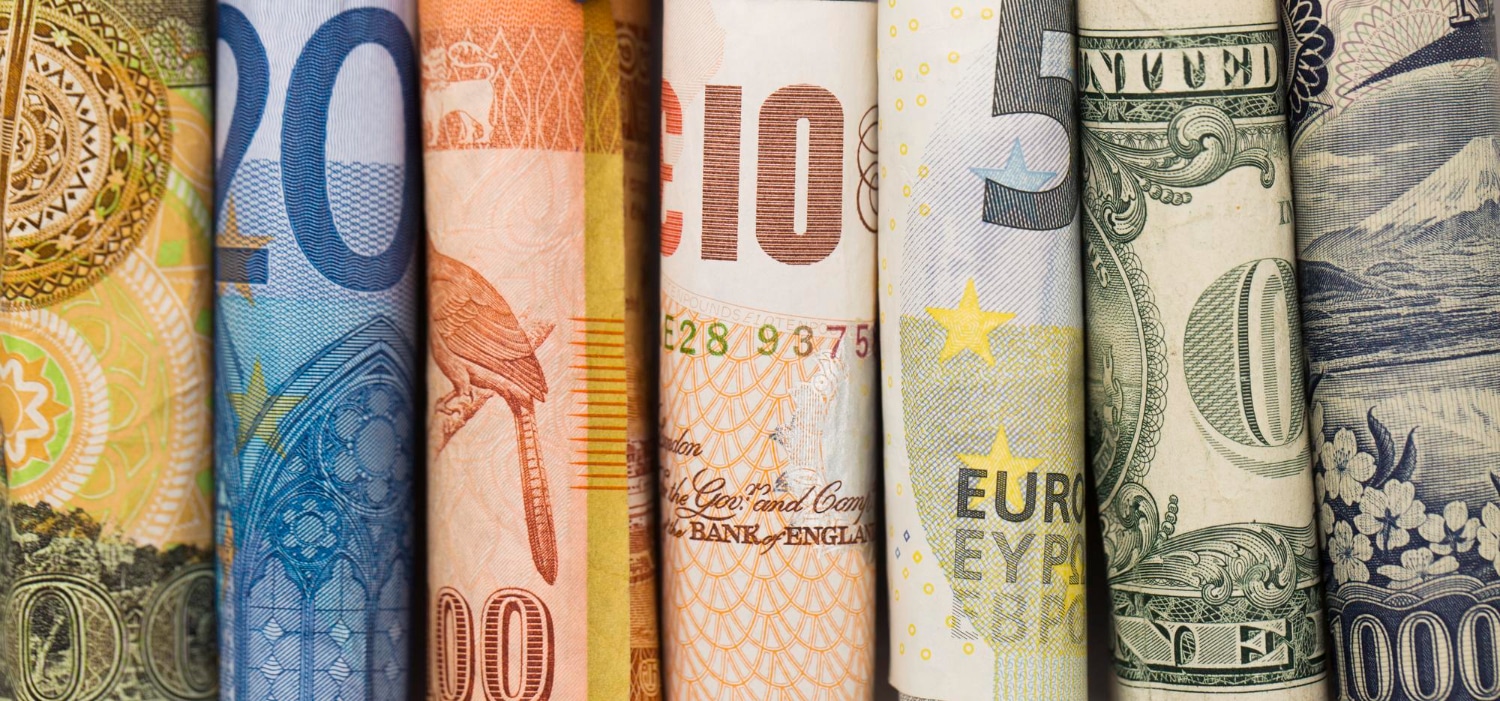
Let me tell you, currencies are like stocks, they’re always moving up or down. You’ve got booming economies where their currency is in high demand, but when things cool off, trust me, the world doesn’t want as much of that currency anymore. It’s simple economics: more supply, less demand, lower value. It’s like real estate in Manhattan – prime location, high demand, prices soar, middle of nowhere, less demand, prices plummet.
Debt: The Silent Currency Killer
National debt can be a major buzzkill. Imagine a country drowning in debt, unable to even pay the interest – it’s a disaster! Their currency could nosedive, becoming almost like Monopoly money. But on the flip side, imagine a country striking gold, or better yet, oil. If they’re smart, and I mean really smart with their money, their currency could become the hottest ticket in town. Think about countries that have their act together, with low inflation and rock-solid monetary policies, they’re the ones everyone wants to do business with.
Hyperinflation: The Nightmare Scenario
Now, let’s talk about the scariest word in currency: hyperinflation. It’s when your money is losing value so fast, it’s like trying to catch water with a sieve. Remember Germany after World War I? Absolutely disastrous. At one point, you needed wheelbarrows filled with cash just for a loaf of bread. Imagine going to the post office and paying 5,000,000 Marks for a stamp. Unbelievable!
Modern Day Currency Crises: A Cautionary Tale
In recent years, parts of the developing world have gotten a taste of this chaos. While maybe not as bad as Germany in 1918, it’s still a mess. When people lose faith in their own money, they rush for the exits, looking for safer, more stable currencies. And the smartest move? Opening an account in a country with a solid currency. Always have a backup plan.
The Domino Effect: Currency and Banks
You know, when a currency crashes, it’s not just about that paper money. The entire banking system tied to it takes a hit. We’ve seen it before. Remember 1929 in the US? Or Argentina in 2001? Banks just couldn’t keep up. And bad business decisions, like the Savings and Loan Crisis in the 80s – a total disaster. Over 700 banks gone, just like that. When people see this chaos, the smart ones move their money to countries that are, well, smarter and more stable.
Safety Nets: FDIC and Its International Cousins
In the USA, we have the FDIC. It’s like a guardian angel for bank customers. If a bank goes under, they step in. Countries like Japan picked up on this idea, setting up their own systems like the Deposit Insurance Corporation of Japan. But not every country has this safety net. In many places, especially the developing world, there’s no backup. This is a big reason why offshore banking becomes attractive. Why put all your eggs in one basket when you can spread them out?
Second Chances: Banking Beyond Borders
Credit isn’t just about if you pay your bills. It’s about trust. If you’ve messed up in the past, it might be tough to get a bank to trust you again. But everyone deserves a second chance, right? Imagine not having a bank account in today’s world – no online shopping, no direct deposits. It’s like living in the Stone Age. But here’s the thing: foreign banks can be a lifeline. They can give you that fresh start. Just make sure you’re using it as a stepping stone and not an escape route. Fix your issues back home, then explore the world of banking.
Going Global with Your Money
Offshore banking isn’t just about fancy accounts in exotic places. It’s a tool, and like any tool, you need to know how to use it. The world of international banking has its secrets, but the next section will pull back the curtain. You’ll discover the ins and outs, from various currencies to the best international banking products. Knowledge is power, and I’m here to give it to you.
Due Diligence

Look, moving your money out of the good ol’ US of A might sound appealing, but trust me, it’s not as simple as it looks. Some countries, like Switzerland – fantastic banks, everyone says so. But let me tell you, those developing countries? They might promise big returns, but they come with big risks, and I mean BIG. And changing your dollars for some foreign currency? Think twice!
The Taxman Cometh: Don’t Get Caught Out!
You think the IRS is tough here? Wait till you see the paperwork for offshore banking. It’s a maze! And if you mess up, not only could you be looking at fines, but you might be breaking the law. It’s a tough world out there, and you’ve got to play it smart.
Doing Your Homework Like a Boss
If you’re going to dive into this, you better know what you’re diving into. Due diligence? It’s like vetting for a top job at the White House. You’ve got to know EVERYTHING – the economy, the bank’s track record, the regulators. And before you make a move? Check the country’s central bank and regulatory offices. It’s a must!
My Top Picks: The Best in Offshore Banking:
- Switzerland: World-class! Like the luxury hotels of banking. Confidential, secure, the best.
- Offshore Banking In The Cayman Islands: No taxes, top confidentiality. A lot of smart people bank here, believe me.
- Singapore: Strong, reliable, and growing. They know what they’re doing in Singapore.
- Panama: Great laws, flexible banking. They’re making big moves in Panama.
- British Virgin Islands: Good financial services, and they value privacy.
- Belize: Quick, simple, effective. You want an account fast? Belize is your place.
Stay Sharp, Stay Informed: The World Doesn’t Wait
Remember 2008? Terrible times. The world of finance? It’s like a reality show, always something happening. If you’re moving your money offshore banking, you better keep your ear to the ground. There’s a lot of news out there, but pick the best, read it daily, and always be ten steps ahead. Your money deserves nothing less!
The Real Truth About Offshore Banking: My Take

When you’re dealing with offshore banking accounts, you have to be smart. In the U.S., we have the FBAR. It’s your ticket to playing it straight with the IRS. Don’t think of it as red tape, think of it as the VIP list. If you’re not on it, you’re not getting in..
Get Yourself The Best Tax Attorney
I’ve worked with the best, and I’ve seen the best. When it comes to tax attorneys, don’t settle for second best. You want the top of the line, someone who’s sharp. It might cost you, but remember, you get what you pay for. And in this game, it’s better to be safe than sorry.
Banking Risks? I’ve Seen Them All
There’s always a risk. Whether it’s in business or banking, you have to play your cards right. Some of these banks? Great. World-class. Others? Not so great. You have to pick wisely. It’s just like real estate in New York – location, location, location.
Legal Advice? Only From The Best
I’ve been around the block, and let me tell you, when you get advice, make sure it’s from the best. Not just good – the best. It’s a tough world out there. You want someone who knows the ropes, someone who’s been in the trenches. It’ll make all the difference.
Know Your Bank – It’s Crucial
When it comes to banks, you’ve got to do your homework. You wouldn’t buy a property without looking into it, right? Same with banks. Who’s running the show? Are they making money? Do they have a good track record? These are the questions you need to ask.
Stay Informed, Stay Ahead
In this business, information is king. Always has been. Always will be. You’ve got to be on top of things. Know the latest, stay ahead of the curve. That’s how winners operate. And if you’re going into offshore banking, you want to be a winner, right?
Offshore Banking Scams: My Extended Insights

Now, I’ve talked about the internet, but let’s not forget the classic tricks. Phony phone calls, fake letters, or even in-person cons. I’ve been in business a long time, and I’ve seen all the tactics. Back in the day, it was all about paper and telephone. Today? It’s digital. But the game? It’s the same.
Digging Deeper into Digital Deception
When you’re online, these scammers might use phishing emails, imitating real banks, asking for your details. Or they might set up fake bank websites, looking so real you’d think you’re depositing money into a secure account. But in reality? It’s going straight into the scammer’s pocket.
The Shell Game: Fake Companies and Ghost Banks
Some of these con artists, they’re setting up shell companies. On paper, everything looks legit. But in reality, there’s no business activity. Just a front to scam people. And let’s not even get started on ghost banks. These are fake banks, often with names very similar to real, reputable banks. They’ll even set up temporary offices, just to lure in victims.
Vetting: Due Diligence is Key
Here’s a golden piece of advice: always, always do your due diligence. If you’re considering an offshore banking or investment, get references. Talk to other clients. Visit the bank in person if you can. And always check with international and offshore banking directories and regulatory bodies. They’ll give you the rundown on who’s legit and who’s not.
Seek Expert Advice: Don’t Go It Alone & Reach Out
And lastly, get yourself a good lawyer or financial advisor who knows the offshore banking world inside out. These pros? They’re worth their weight in gold. They’ll guide you, make sure you’re compliant with all laws, and most importantly, keep your money safe.
Beware the “Too Good to Be True” Email
Scenario: You open your inbox and see an email from some bank promising sky-high interest rates.
My Two Cents: Listen, I’ve made some of the best deals out there. And let me tell you, when something sounds too good to be true, it usually is. Before you even think about clicking, verify the bank’s name. Don’t get fooled!
The Middleman Mirage
Scenario: Some guy walks up to you, flashy suit, smooth talker, claims he can open an offshore banking account for you. No fuss, no muss
Advice: Why do you need this guy? The best banks, the really great ones, they’ll deal with you directly. This guy’s probably looking to make a fast buck. Always, and I mean always, check out anyone making big promises.
The Fake Bank Trap
Scenario: You find this bank online. Never heard of it, but it looks legit. Great website, glowing testimonials, the whole nine yards.
Wisdom: Look, I’ve been around the block. These scammers, they’re smart. They can set up shop overnight. Always, always double-check with the country’s main bank. And if you can, pay them a visit.
The “Perfect Safe Haven” Pitch
Scenario: You see an ad or hear from someone about this magical country where your money’s safe, no matter what.
Reality Check: No place is perfect. Diversifying is good – I’ve always said that – but don’t be fooled by tall tales. Look into the country’s track record. And talk to the real experts.
Bank Regulators & Consumer Warnings
When you’re making a big move, like opening an account in another country, you need to do your homework. And where better to start than the regulators’ own websites? – but remember, things change, so keep checking. These sites? They’re gold mines. They’ll tell you everything: from the state of the offshore banking industry, the banks, to the latest happenings.
Heed the Consumer Warnings
Here’s the deal. These regulators? They’re looking out for you. If there’s something fishy, they’ll raise the alarm. Maybe there’s a shady company pretending to be from a fancy place like the Isle of Man, when they’re not. Or some outfit claiming they have a license they never earned. These warnings are there for a reason – to keep you safe. And trust me, in today’s world, with banking crises popping up left and right, you want to be in the know.
Stay Updated
Anytime you’re thinking about diving into a foreign bank, take a moment. Read the latest warnings. Why? Two reasons. First, you’ll get the lowdown on what’s happening in that country’s banks. Know if any bank’s gone under, or if there’s any big changes you should be aware of. And secondly, you’ll be one step ahead of the cons. Know the scams, avoid the traps. Knowledge is power!
Trust, But Verify
Now, I’ve been around the block, and if there’s one thing I’ve learned, it’s this: Don’t take anything at face value. Even this guide, as good as it is, you should double-check everything. If a bank’s bragging about a license, pick up the phone, call up the country’s bank regulators, and see for yourself. And if you’re ever in doubt, always, always verify independently. Why? Because when things go wrong across borders, getting your money back? That’s a tough game.
The Offshore Banking Philosophy

Start Small, Think Big! Everybody wants to win big, but when it comes to offshore banking, sometimes it’s smart to think small at first. Let’s say you’ve got a cool $1,000,000 USD you’re thinking of moving offshore banking. You find this best bank, looks great, only asks for $100,000 to kick things off. Here’s my advice: just send that initial grand. Test the waters.
Why Testing the Waters Matters
If they treat you right, if everything is on the up and up, then go ahead and send the rest. If not, you’ve saved yourself from a big headache. And hey, when you travel to these beautiful countries, you can always top off your account in person. Smart!
Know the Territory: Risks and Rewards
Look, there’s no such thing as a sure bet. Every smart dealmaker knows that. Whether you’re stashing cash under your bed or buying gold, there’s always a risk. Especially when you’re talking about moving your hard-earned money to another country.
The Unpredictable World of Offshore Banking
Some of these places, they’re just getting started, economically speaking. They could face recessions, crazy currency swings, even bank collapses. And let’s not even talk about the political drama – coups, wars, you name it.
But remember, high risk can mean high reward. Just make sure you’ve done your homework. Before you make your move, you’ve got to check out the scene. And I’m not just talking about the beaches. Dive into the bank regulatory sites listed in this guide. They’ve got the inside scoop on everything you need to know – from bank health to government guarantees.
The Big Names in Credit Ratings
And don’t just take their word for it. Look at the big picture. I always do. Check out the credit ratings from big names like Standard & Poor’s and Moody’s. They’ve been in the game a long time. They know what’s up. But at the end of the day, remember one thing: it’s your money on the line. So, play it smart, do your research, and always be prepared to walk away if something doesn’t feel right. You’ve got this!
Offshore Banking Protection
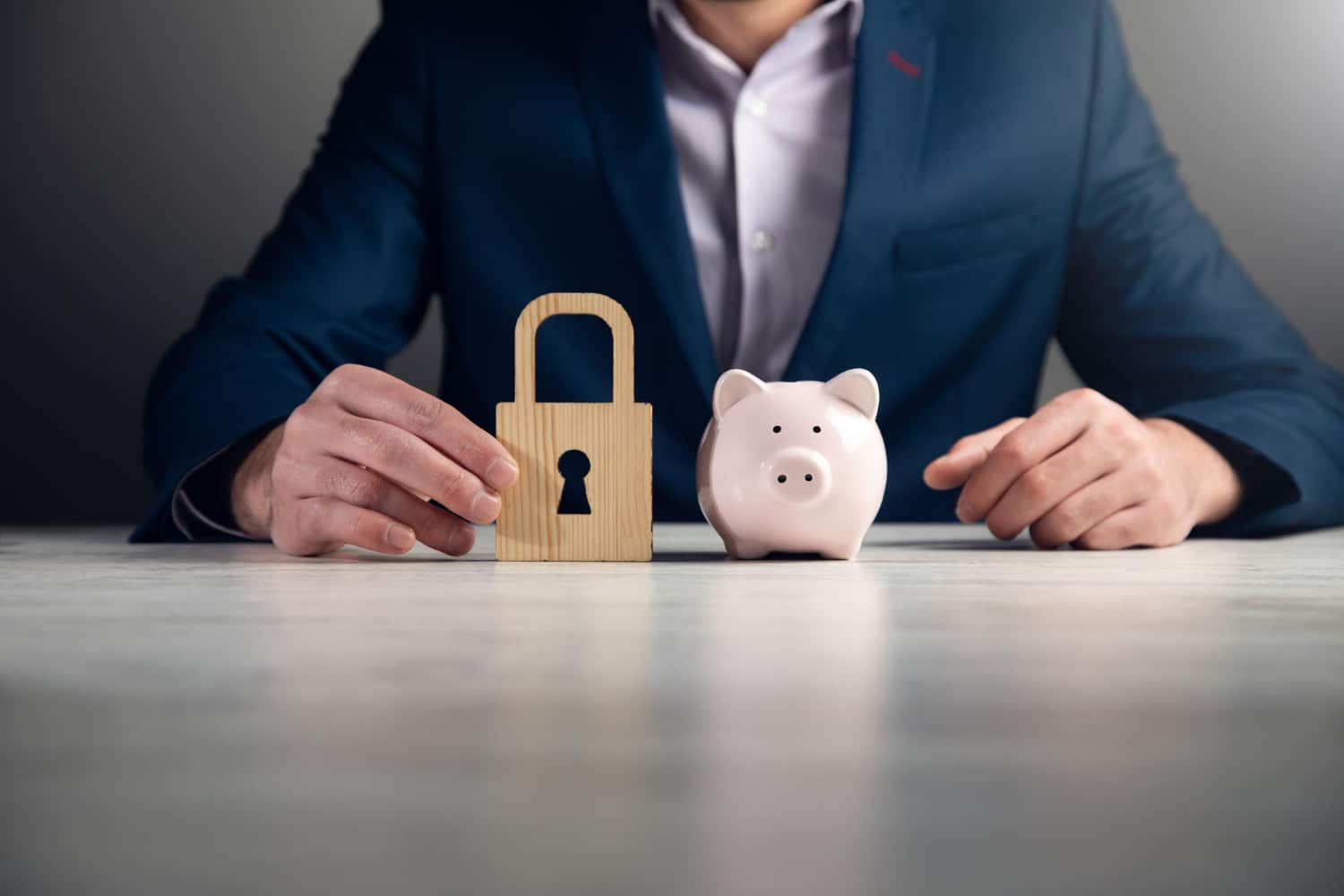
Everybody knows, in the U.S., we have the FDIC ( Federal Deposit Insurance Corporation) – it’s fantastic, probably the best. But out there, in the big world, it’s a different game. A lot of these smaller, developing countries – they just can’t keep up. They can’t afford the guarantees, but they’re trying, I’ll give them that. And then you have countries like Germany, Ireland, and Britain stepping up in 2008. Very impressive. Most of the EU? They’ve got things in place too. We have to appreciate that.
Inflation: We’ve Got to Beat It
Inflation’s a big word, a lot of people are talking about it. It’s about prices going up every year and your money buying less. It’s there, it’s always been there in capitalist systems. But look at countries like Argentina, 10.4% inflation in just a month in 2002. And Zimbabwe? Their 2008 inflation is a number so big I had to look twice – 231,000,000%! Unbelievable! If you’re thinking about offshore banking internationally, you’ve got to be smart, very smart. Always get the best advice.
2008 Banking
A Tough Time, But We Came Through 2008 was wild, just wild. Banks were tumbling left and right, and governments had to jump in – big time. Some countries even had to create those depositor compensation things from scratch.
Look at Iceland, their banks just crashed, all of them. But here’s the thing, the world’s banking system? It’s resilient, very resilient. Offshore banking is still a goldmine, but you’ve got to play it safe. There’s a lot of stuff out there, like the World Banking Almanac – terrific guide. Always stay on top of things, and you’ll win big.
Currency: It’s All About Being Smart
Now, currency, that’s another ball game. They go up and down, especially when inflation hits. Sometimes you get more interest in local currencies, sometimes in the big ones like the dollar. Do your homework, study the inflation rates, and know the risks. And always, always talk to the best people before making moves.
Stay Updated or Get Left Behind
In the world of international banking, you’ve got to be sharp. Things change fast. Very fast. The World Banking Almanac, I’ve mentioned it before, it’s a gem. And the news? Keep an eye on it. In finance, if you’re not ahead, you’re behind. Remember that.
International Banking, We’ve Got To Be Careful
There are some bad hombres out there – criminals, terrorists – who want to play games with our world financial system. They’re looking for ways to hide their dirty money or fund some really, really bad stuff. It’s terrible. But here’s the good news: The world, the entire global community, has been working super hard to stop this. Money laundering? Harder than ever. Terrorist financing? We’re on it.
The Big Players: FATF & OECD
Now, there’s this group – the Financial Action Task Force on Money Laundering (FATF), part of the Organization for Economic Co-operation and Development (OECD). FATF is a group of 32 countries, the best countries, the big players. They came together for one big reason: to close those nasty loopholes in offshore banking. No more free rides for money launderers.
Now, if a country messes up, doesn’t play by the rules? FATF has this list – the Non-cooperative Country or Territory (NCCT). It’s like the blacklist of banking. Trust me, you don’t want to be on this list. Banks will scrutinize you, many won’t even deal with you. It’s a big, big problem.
Remember 2000? They had 23 countries on that list. But guess what? Every single one of them cleaned up their act. Even Switzerland! They had to change their bank secrecy laws, all because of the pressure. If you’re in a country that had issues in 2001 or dealt with the OECD recently, you’d know.
Egmont Group: The Watchdogs
Then there’s the Egmont Group. They’re the watchdogs, always on the lookout for anything fishy in international banking. Over a hundred financial intelligence units (FIUs) from all over the globe are in it. They analyze transactions, hunt for illegal stuff, and if they find something? They team up with the cops. The name? It comes from this palace in Belgium, where they first met in ’95. They’ve been growing and meeting ever since.
Unlocking the Power of Offshore Banking

Unlocking the Secrets of Offshore Banking! Navigating Offshore Banking: Key Concepts and Definitions? Let me tell you, it’s huge! Before diving deep into the world of international banking, you need to know the real deal. Understand the major global currencies, get to know the different account types, and you’ll be on your way to mastering overseas accounts. It’s essential stuff!
The Real Story Behind Offshore Banking
Some people hear ‘offshore banking’ and think luxury, exclusivity, and yeah, maybe a bit of mystery. Wrong! That’s just a misconception because most don’t get the real advantages of Offshore banking. Sure, there have been a few bad actors using bank secrecy laws for not-so-great reasons. But come on, offshore banking isn’t about hiding money or dodging taxes.
As you’ve probably seen on our website, there are tons of legit reasons to diversify your assets worldwide. And as the world gets more global, smart people see the big picture of Offshore banking . Remember, offshore banking is all about using foreign banks the right way, not the shady way. It’s basically ‘international banking’ – plain and simple.
International Banks Decoded: Foreign vs. Offshore
Let’s break it down. When we talk about international banking, you’ve got two major players:
- Foreign Banks: Think regular banks, but in another country. They offer the usual – checking accounts, savings, CDs, loans. They make their money from loans and fees. Want a Euro account? Think Germany. Moving to Finland? You’ll want a local bank there. It’s just common sense!
- Offshore Banking: These are the big league banks. They’re in places with great tax laws, top-notch privacy, and fewer regulations. Mostly for the wealthy from all over the world. They’re not really for the local guy. What they do? Financial deals, wealth management – the works. No regular consumer stuff. They make their money from fees and managing big wealth.
If you strike it rich suddenly (like hitting the jackpot), and want to keep things private while managing your wealth like a pro, you might think offshore banking. Just make sure you’re following all the rules and paying your taxes.
Offshore Banking for Everyone: Not Just the Elite!
The Evolution of Accessibility in Offshore Banking? Huge changes! Offshore banking isn’t just for the mega-rich anymore. Banks have woken up! They see the big potential in regular men looking to grow their money with high-interest foreign CDs or those wanting to diversify with multiple currencies. And let me tell you, small business owners? They’re loving the asset protection these foreign places offer, just like the big corporations.
Today’s Offshore Banking: It’s a Big Tent
Banks today? They’re rolling out the red carpet for everyone. But let’s be real – there are still some rules. Some banks are cool with any deposit size, but you’ve gotta have some skin in the game. The bottom line? It’s usually around $1,000 USD or something close in other big currencies. But here’s a tip: many start with an initial deposit between $50,000 and $100,000 USD. And a fun fact: Caribbean banks? They’re usually easier on the wallet than those European ones.
The Real Deal Behind the Bank’s Rules
So, why these rules? It’s simple business. Cross-border banking isn’t cheap. There are fees, international call costs – the works. Offshore banking? They’re in it for the long game, focusing on growing your wealth big time, not for your coffee runs or paying the electric bill. So when you drop a big deposit, it tells them you’re serious and looking for those high-end services.
Banking Abroad: It’s Easier Than You Think!
So you’re thinking about everyday banking, especially when jet-setting across the globe? Regular foreign banks? That’s your ticket. They cater to everyone and deliver the classics. In the good ol’ U.S., you’re talking maybe $100 USD to kick things off. It’s the same deal in most places worldwide. Oh, and Canada? Same story. But here’s a fun tidbit: some spots in the Caribbean? You can start with less than $20 USD. That’s a deal!
Pick the Right Bank for Your Bucks
The bottom line is this: match your money moves with the right international bank. Whether you’re eyeing the long game, safeguarding assets, or just need a bank for daily spends, getting the 411 on offshore banking is key. It’ll make your life easier and your pockets happier. And for those wanting the inside scoop? Check out our website.
The Real Cost of International Banking
When it comes to international banking, you’ve gotta be smart. Regular banks abroad? No big fees upfront. But those offshore banking places? Different story. They might hit you with fees right out of the gate and keep charging every year.
Now, a simple offshore banking account? It’s easy but expect to shell out a few hundred bucks, plus a yearly charge. And if you’re thinking big, like setting up offshore banking trusts? That’s some big league stuff! You could be looking at tens of thousands in setup fees, with an annual tag of at least a grand.
Do the Math and Make It Count
Think about it: if you’re dropping $10,000 and they charge you $400 upfront and every year, that’s 4% off the top in year one. But if you’re playing with a cool million? Those fees drop to just 0.04%. Pennies! And the perks? Bigger privacy and maybe even bigger returns.
Insist on Bank Fee Clarity
Always know the score. These banks? They have to tell you about all the fees. It’s the law. If they play coy? Big red flag. Make ’em hand over a detailed fee list. And if they won’t? Time to look elsewhere. You deserve the best deal and the straight facts.
Tiny Places, Big Banking Wins
You know what’s interesting about offshore banking hotspots? They’re often in these small, tucked-away places. Think Caribbean gems like Turks and Caicos and the Cayman Islands. Or, hey, even in Europe: Andorra, the Isle of Man, Guernsey, Jersey, Liechtenstein. Not all islands, but all big players in the money game. They might look like tiny dots on the map, but trust me, they’re financial giants.
Why Do These Small Spots Shine So Bright?
Why do these little countries pack such a financial punch? It’s all about strategy and playing the cards they’re dealt. They all want a piece of the global pie – a strong economy, good living for their people. But many have challenges. No natural resources. The Bahamas? Not much farmable land. Bermuda? No oil. The Isle of Man? Their beaches aren’t the kind to attract your typical sunbathers.
Offshore Banking And Global Tax Avoidance Strategies
Offshore banking is often utilized as a tool to facilitate global tax avoidance strategies. By depositing funds in foreign accounts, individuals and corporations can decrease their tax liability by taking advantage of lower tax rates, tax treaties, or banking secrecy laws. However, it is crucial to note that engaging in global tax avoidance strategies should comply with legal frameworks and regulations to ensure ethical and lawful practices.
Offshore Banking: The Game Changer
Even if they’ve got smart people, these places can’t always grow in the usual ways. No big ports for shipping in Andorra or Liechtenstein. So what’s their move? Offshore Banking. And it’s brilliant! They bring in big deposits, boost their economies, create jobs, and rake in government revenue.
And get this: modern tech means they’re not isolated anymore. Banking today? All digital. Move money from Europe to Asia in a snap. No ships or planes needed.
Small But Mighty
These small states show the world that when it comes to offshore banking, it’s not about size – it’s about strategy and smarts. They’ve made a name for themselves, and it’s impressive. For the real inside scoop on how these little guys make big waves, check out our website. They’ve got the deep dive on how these small places dominate in big banking.
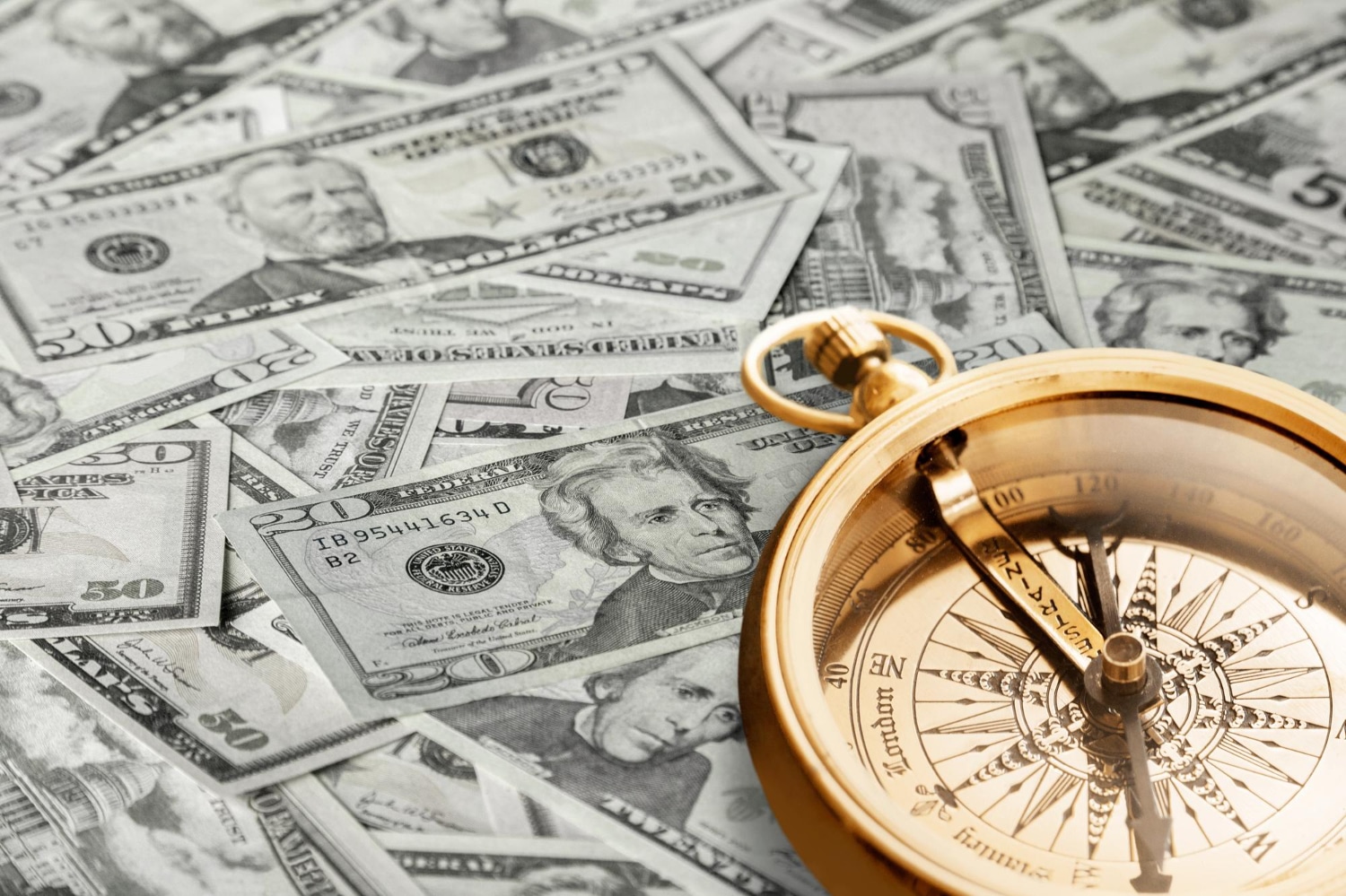
Navigating international banking can be complex, but understanding the key products and services can make it simpler. Here are the best international banking services explained simply:
- Multi-Currency Accounts: Fantastic accounts! You can hold multiple currencies in one place. Say goodbye to constant money conversions. It’s a game-changer for people dealing with global money.
- Wealth Management & Private Banking: Only the best for successful men. Get top-notch advice on where to invest, how to plan for the future, and smart tax strategies. They roll out the red carpet for you.
- Offshore Trusts: Put your assets in a trust, managed by pros. Protect your wealth, especially in places with the best laws. A winner’s choice.
- International Wire Transfers: Send money worldwide, quickly and efficiently. A must-have for big players in the international arena.
- Investment Opportunities: Get in on the action globally! These banks open doors to invest everywhere, not just your backyard.
- Foreign Exchange (Forex) Services: Get the best bang for your buck when switching currencies. It’s all about making smart moves.
- Corporate Banking Solutions: For the big businesses going global. Everything you need, from accounts to trade tools. Top-tier stuff.
- Digital Banking Services: Manage your empire online. With these tools, you’re always in control, no matter where you jet off to.
- Deposit Services: Park your money and watch it grow. These guys might give you rates that’ll make your local bank jealous.
- Confidentiality Services: Keep things private. These banks get it. They offer tight security but always play by the rules.
Understanding these key products and services can help you navigate the world of international banking with confidence. Remember: Banks, like everything, can vary. Always do your homework, get the facts, and choose the best for your needs. Make offshore banking great again!
Understanding Deposit Accounts
When diving into the world of international and offshore banking, let me tell you, deposit accounts are everywhere. Just like our great American banks, you give them your money, and they might give you a bit of interest. But, don’t expect to get rich off the interest from these accounts. If you’re looking for the big bucks, you might want to check out term deposits.
Now, banks around the world have all sorts of names for these accounts – checking, savings, current – but it’s all the same game. You park your money safely, and maybe earn a little on the side.
Here’s the catch: where you choose to bank matters, big time. Places known for offshore banking? They’ve got it all, with options tailor-made for people like us going global. But, if you’re thinking about offshore banking in some random country, think twice. Some places won’t let outsiders earn interest because they don’t want to deal with taxes. So, you end up with an account that doesn’t earn a dime.
If you’re a big player in the global game, don’t get caught off guard. Do your homework, pick the right financial centers, and maybe get some advice from the pros. Websites like mine have tons of info that can help you make the smart move in offshore banking. Make your money work for you, no matter where you are!
Debit cards are everywhere in the U.S., and they usually double up as ATM cards too. That’s how it works internationally as well. But listen, if you’re not a resident, you might hit some roadblocks because of different countries’ rules and regulations.
Here’s the problem
using a debit card, you might spend more than what’s in your account. Now, the bank covers you, but that’s like giving you credit. And let me tell you, a lot of countries don’t like giving credit to foreigners. It’s a big, big challenge.
On the other hand, ATM cards are a different story. They’re just for getting cash out, no credit involved. They’re easier to get if you’re not from around there. You get a card, a PIN, usually by mail. But, if you need to change that PIN, you might have to go all the way to a branch, which could be on another continent. So, guard that PIN like it’s gold!
Using an ATM card internationally
Using an ATM card internationally isn’t a walk in the park either. If there are no local branches or ATMs back home, you’re going to be hit with fees from your bank and the ATM’s bank. It adds up fast, so pulling out cash all the time? Not a great idea.
For the successful people out there, knowing the ins and outs of this stuff is key. You’ve got to play it smart to avoid fees and navigate through all the red tape. ATM cards are handy, but you’ve got to be aware of the costs and the hassle. Keep an eye on your balance and plan your withdrawals wisely. That’s how you make the most of offshore banking!
The Big Players in World Currencies
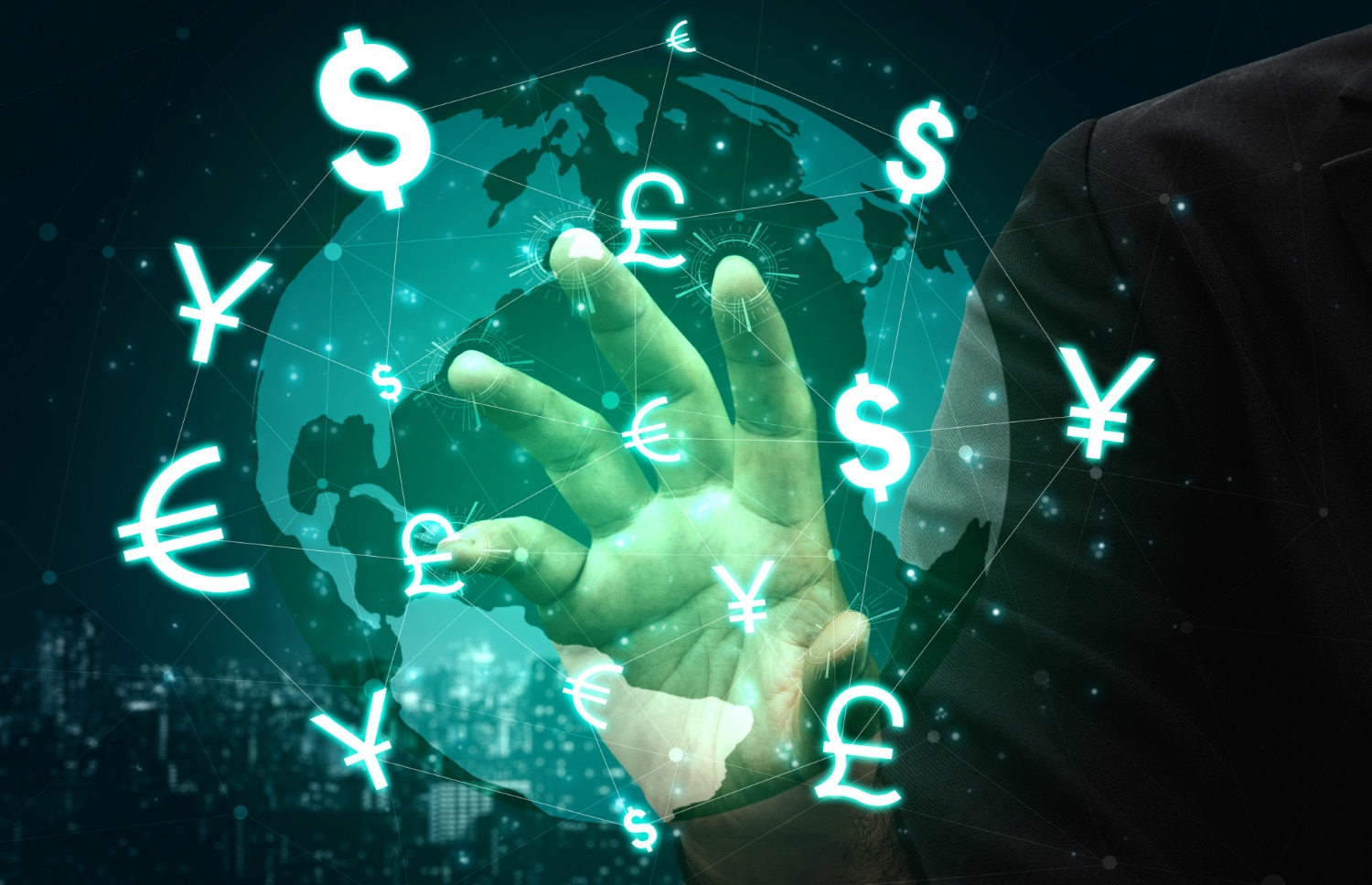
If you’re in offshore banking, you’ve got to know your currencies. The big players. This isn’t just a tip, it’s essential. For the top-tier businessmen out there, knowing the ins and outs of these currencies isn’t just smart – it’s crucial. Let me break down the major ones for you, the currencies that are making waves in global banking.
United States Dollar (USD)
The good ol’ USD! It’s huge. Not just here, but everywhere. It’s leading the game in global trade and is the go-to reserve currency. Many other countries even use it as their official currency! Think about that. And let’s not forget, it sets the pace for big commodities like oil. When the USD speaks, the world listens.
Euro (EUR)
The Euro, the big currency of the European Union. Strong, stable, and giving the USD a run for its money. It’s not just in the Eurozone either. Many countries are tying their own currencies to the Euro. Shows you just how powerful it is, doesn’t it?
Swiss Franc (CHF)
The Swiss Franc is like the gold standard of stability. Switzerland has its act together, with strict financial rules and a ton of gold in reserve. It may not be a ‘reserve currency’ like the USD or Euro, but smart investors love it. It’s a safe bet in a crazy world.
Great British Pound Sterling (GBP)
The Brits have the GBP, and it’s still a big deal. Even with all the Euro chatter, the Pound keeps rolling. Thanks to the UK’s massive economy, it’s a heavy hitter in the global market. And it’s here to stay.
Israeli Shekel (ILS)
Israel, tremendous player in the tech and finance world. Their currency, the Shekel, stands strong and independent. Israel’s got a dynamic economy, and the Shekel reflects that. It’s a key player in the Middle East and an important one to watch in global markets.
Japanese Yen (JPY)
The Yen! Japan’s pride and joy. It’s right up there, being the third most traded currency in the world. After World War II, things changed, policies shifted, but look at it now! Japan’s industrial might and sharp economic strategies have kept the Yen strong in Asia and across the world. It’s a player, believe me.
Australian Dollar (AUD)
The AUD – it’s making waves down under. It may not be the USD or Euro, but in the Pacific? It’s king. Investors love it, and why wouldn’t they? Australia’s got a solid economy, and they know how to keep things stable. If you’re looking to diversify, the AUD is a smart bet.
New Zealand Dollar (NZD)
Now, the NZD might be the smaller sibling in the Pacific, but don’t underestimate it. They’ve got partnerships, like with the Cook Islands, and they’re doing their thing on the global stage. Maybe not as big as some others, but they’ve got game.
Canadian Dollar (CAD)
Maybe it’s not grabbing global headlines like the others, but don’t count the CAD out. It’s big in North America, especially with trade ties to the U.S. Keep an eye on it, and the relationship with the USD. It tells a story about the economic shifts happening close to home.
All these currencies, they’re the backbone of offshore banking. They’ve got history, economics, politics – the whole package. If you want to be smart with your money, know these currencies. Understand their dance on the global stage.
When you’re diving into the world of offshore banking, knowledge is power. And knowing the ins and outs of these currencies? That’s the ticket to sailing smoothly in the vast ocean of global finance.
Offshore Banking’s Currencies
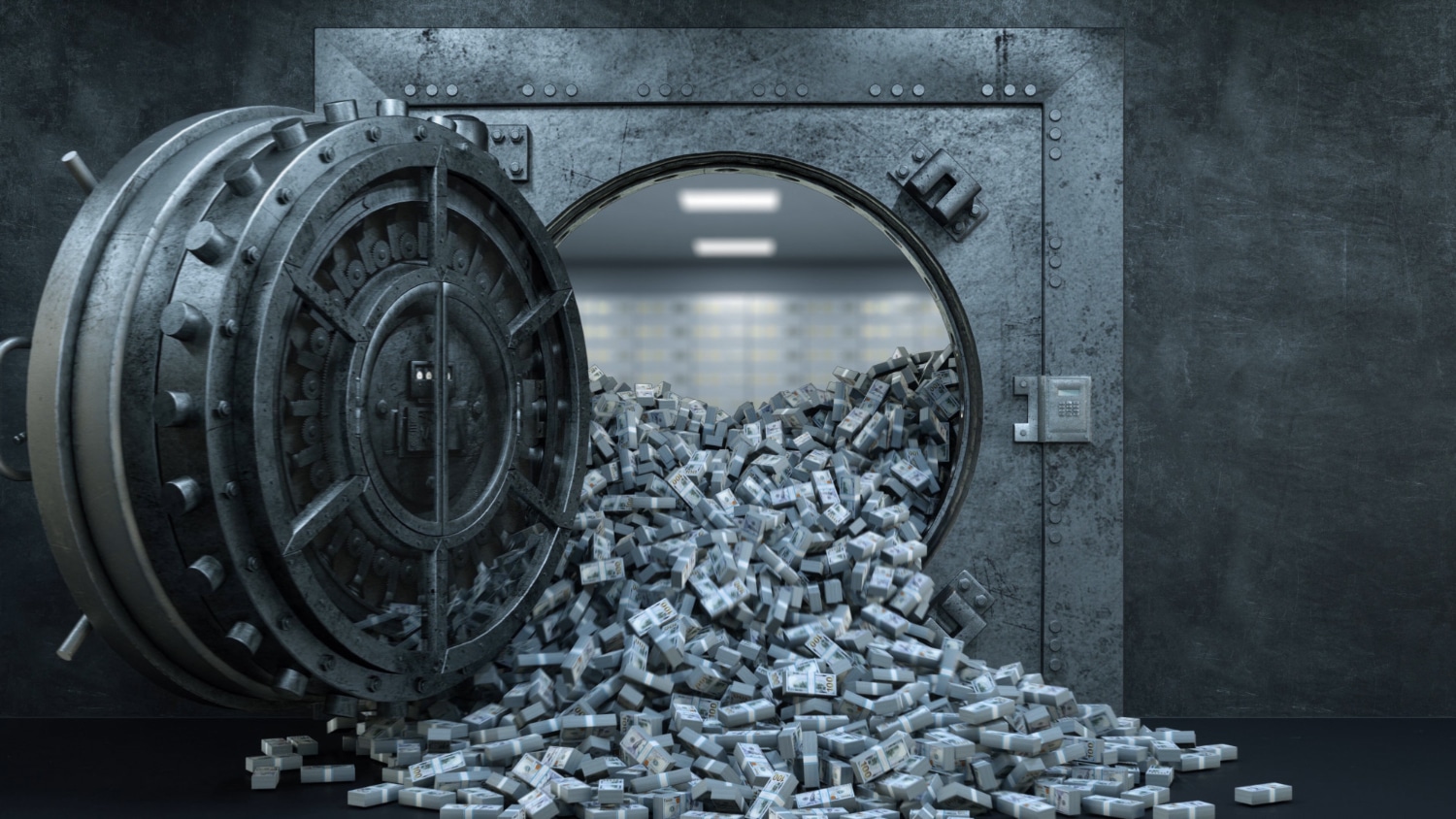
When you talk about offshore banking, you’ve got to understand there’s a whole world of currencies out there. We’re not just talking about the big names everyone knows. There are some real heavy hitters that people in the know, like me, always keep an eye on. They’re solid, reliable, and, quite frankly, best for business. Let’s break it down:
Cayman Islands Dollar (KYD)
The Caymans? Beautiful place. And their currency, the Cayman Islands Dollar? Pegged right to the U.S. Dollar. That’s a smart move. It’s stable, it’s strong, and let me tell you, investors love it. If you’re doing business in the Caymans, you’re in good hands.
Bermudian Dollar (BMD)
Now, Bermuda is another top-tier offshore banking spot. Their dollar, just like the U.S. Dollar. Predictable, stable, and perfect for anyone looking to invest or do business there.
United Arab Emirates Dirham (AED)
Dubai, ever been there? Beautiful place. They’re using the Dirham, and it’s solid as a rock. Pegged to our dollar, it’s reliable and perfect for big-time transactions.
Singapore Dollar (SGD)
Singapore, what a powerhouse. Their dollar? Independent, strong, and backed by one of the best banking systems out there. If you’re in Singapore, you know you’re dealing with the best.
Hong Kong Dollar (HKD)
Hong Kong, one of the big leagues. Their dollar is pegged to ours, which means stability. Big businesses, big transactions – the HKD handles it all.
Gibraltar Pound (GIP)
Gibraltar might be a little off the beaten path, but they’ve got their act together. Their pound is pegged to the British Pound Sterling. It’s not everywhere, but when you see it, you know there’s serious business happening.
Look, these aren’t your everyday currencies, but in the world of offshore banking? They’re MVPs. They’re about diversification, smart financial moves, and sometimes, a bit of privacy. These places offer stability, top-notch banking services, and some pretty attractive tax benefits. If you’re serious about international finance, these are the currencies you need to know.
Foreign Bank Account
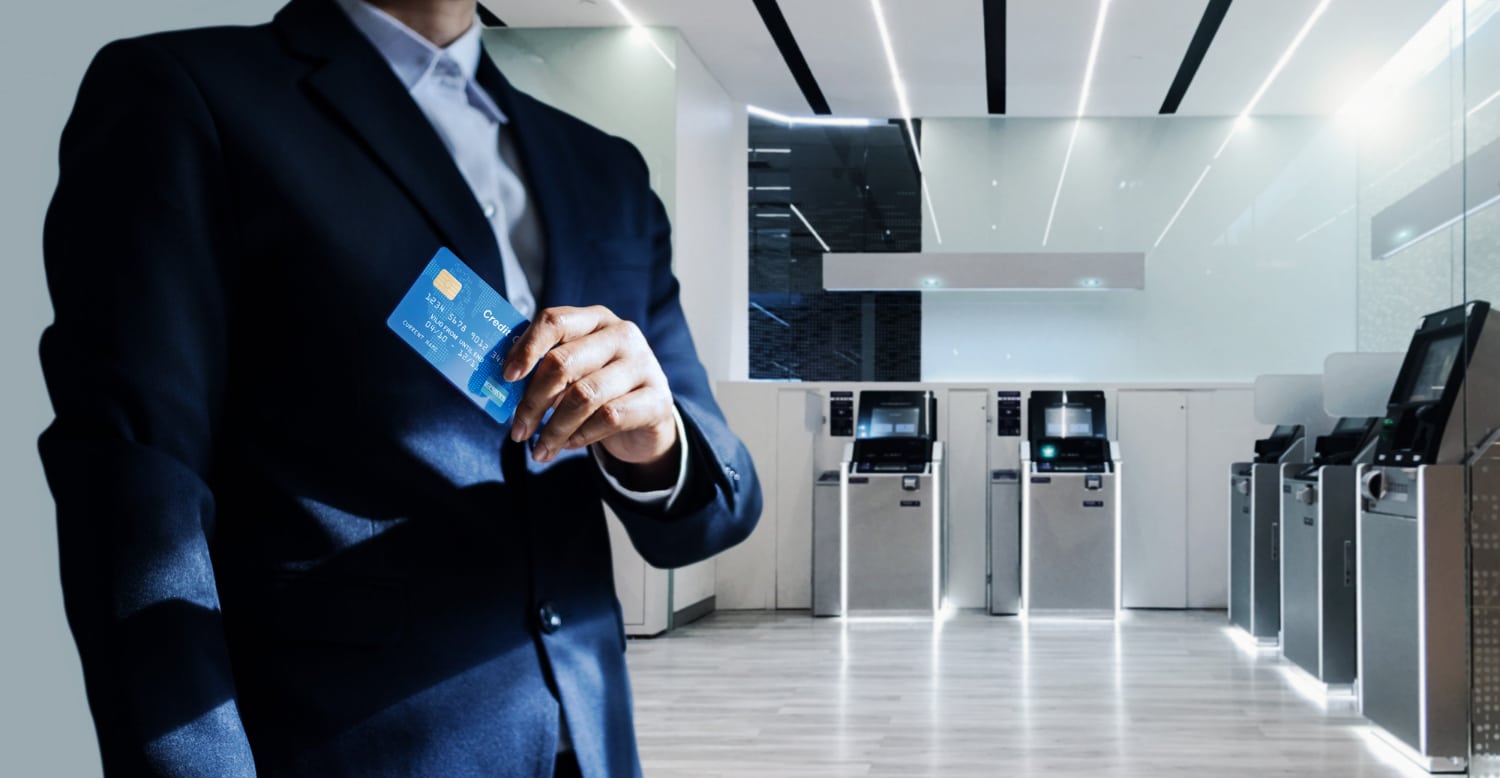
Global finance is huge, and offshore banking is the big-league choice for those wanting privacy, tax breaks, and more options. But to really win here, you’ve got to know the game inside out. It’s not just about picking a bank – it’s about picking the right place and the right bank.
Choosing Your Winning Spot
Start with figuring out the best place, a jurisdiction that gives you strong privacy, great tax benefits, and stability. You can get all the specifics here. Remember, it’s not just about a place on the map, it’s about going where they’ve set things up to protect you and your money.
Picking the Best Bank
Here’s where you’ve got to be smart. After settling on a location, find a bank that’s not only top-notch but also understands people like you, who have a lot going on financially. Look at the bank’s health, the services they offer, and what people are saying about them. And always stay updated – there are good news and bad news out there, and you need to know both.
Getting Started: First Impressions Matter
Once you’ve found that perfect bank, reach out the right way. Most banks have official ways to get in touch on their websites. Be clear about what you want, ask the right questions, and make sure you know all the rules, especially the ones for people from other countries.
Interest: Making Your Money Work Harder
Now, here’s where things get interesting. A lot of these places offer better interest rates because they’re trying to attract big investors. But you’ve got to know how this interest works with taxes – some places might not take tax out right away, which is great, but always be clear on what you owe back home.
Look, every big opportunity has its challenges. Some places might put limits on what you can do because you’re not from there. And while we’re living in a digital age, which makes things easier, be ready for some banks that still want to do things the old-fashioned way, like over the phone.
Wrapping It Up: Offshore Banking Done Right
In the end, offshore banking is like a high-stakes game of chess. There are moves to make and strategies to plan. If you’re smart, get good advice, and do your homework, you can have your money in the best spots, all while playing by the rules.
The Big Picture on International Banking
Listen, if you want to be a major player in the world of finance, you’ve got to think offshore banking. We’re talking about a level of banking that’s beyond borders, especially if you’ve got significant assets. While most places like to keep their banking exclusive to locals, if you get the ins and outs of offshore banking rules and use the global networks right, you’re in for some real advantages.
Visas: The Golden Ticket to Offshore Banking
To get started, you’ve got to have more than just a passport. A lot of these countries want you to have the right visa, not just the one you use for vacation. This can mean anything from student visas to temporary ones. And guess what? The rules aren’t the same everywhere. Here’s a list of 11 big players with their own set of rules:
- Great Britain.
- Japan.
- South Korea.
- Italy.
- Portugal.
- Spain.
- The Netherlands.
- Mexico.
- Israel.
- United Arab Emirates.
- Brazil.
Want the latest on this? Don’t just guess. Get in touch with the country’s consulate or embassy. A quick online search can point you in the right direction.
Offshore Banking: Access & Strategy

Look, if you want to be the best in the world of money, you’ve got to go global. Major banking institutions, especially the ones from the US, Canada, and Europe, are everywhere. And that’s huge. Why? Because it helps people like you and me who want to bank in places that usually only let locals in.
Here’s the secret move: Open an offshore banking account where they’re friendly to outsiders, whether that’s back home or somewhere else that rolls out the red carpet. Once you’re in with one branch, the whole network knows you. It doesn’t matter where your main account is.
And the perks? They’re terrific. You get easy access to your money, top-tier service, and smooth international deals. But the real win? You can open more accounts in different countries within the same bank network.
So, you’ve got your eyes on a place that’s a bit picky about who they let in? No problem. Just find a bank that’s in both that country and somewhere friendlier to outsiders. We’ve got a goldmine of this info on our Website, showing you where you’ll get the warmest welcome.
Once you’ve got that bank, here’s the game plan: Talk to the branch in the friendly country, and see how they can help you branch out to the tougher spot. Their systems make it easy, putting you ahead in the global banking game.
Bottom line, offshore banking might look tough, but for smart businessmen, it’s a breeze. By playing the global banking game and getting the rules down, you’re set to win big on the world stage, keeping your money safe and moving it wherever you like.
Opening A Savings Account
Let’s get straight to it. International banking isn’t always smooth sailing, especially when it comes to checking accounts. The world’s banks are cautious – and rightfully so. While checks are big in the U.S., they’ve got problems elsewhere. Bounced checks? Big reputation hit for banks. And that’s why they’re so tight on their rules.
The Power of Savings Accounts
But here’s the good news: savings accounts are your golden ticket. Why? No checks. No hassle. That means banks see way less risk with them. And if you’re not living in the country, you don’t even need checks for daily stuff like utilities. Plus, with a savings account, you get an ATM card. That’s cash access anywhere you go. And for everything else on your trips, your U.S. credit cards have got you covered. That makes savings accounts a no-brainer for anyone looking to go global.
How to Do It & The Big Payoff
Getting a savings account is like any other account, but with way fewer hoops to jump through. Banks worldwide are more welcoming because they know the deal – they’re taking on less risk. And here’s the cherry on top: you earn interest.
Most checking accounts, even back home in the U.S., don’t do that. Sure, there might be taxes, but if you’re putting in a decent chunk of change, it’s a win-win. Bottom line? Going the savings route is a smart play. It’s in line with how global banks think, and it gives you a little extra in your pocket. If you’re a big thinker, expanding your financial game globally, this is the move.
Mastering Offshore Banking: Personal Touch over Numbers
When you’re heading Offshore Banking, forget about those U.S.-based credit reports and Social Security numbers – they won’t do you any good. You see, foreign banks want to know you, the real you, not just some number on a report.
Bank References
It’s Your Personal Financial Resume: Think of a bank reference like your personal financial resume. Fill out a consent form, and your current bank will spill the beans about your banking history to the offshore banking. And by the way, watch out for those service fees – sometimes they might charge you around $50 for that reference.
Roll Out the Red Carpet with an Introductory Letter
Want to get the VIP treatment? Get an introductory letter from your current bank. Official letterhead, real signatures, the whole nine yards. What’s in the letter? How long you’ve been banking with them, the kind of accounts you have, and that you’re a top-notch customer. A hint about your big balances can give you an edge. But hey, no account numbers – that’s just common sense.
Where’s the Money From? They’ll Want to Know!
With all the rules out there about money laundering, these offshore banking want to make sure your money’s legit. So, be ready to show them some old bank statements or proof of your income. They’re just doing their job, keeping the world safe from the bad guys.
Put Your Money Where Your Mouth Is
So, you’re ready to fund that new account? Wire transfers are the usual way, but sometimes these banks like to kick it old school with a bank draft or check. It’s all about the paperwork and playing by the rules.
Currencies and Interest Rate Variance
Interest rates vary across different countries due to factors such as inflation rates, economic stability, and central bank policies. This means that the interest rates on savings accounts will differ from country to country.
Therefore, if you have a savings account in a country with higher interest rates, you can potentially earn more on your savings compared to a country with lower interest rates.
It’s important to consider the variance in interest rates when deciding where to open a savings account, as it can significantly impact your savings growth. Keep this in mind as you explore global banking options and aim to maximize your financial returns.
Here are the 3 main reasons why interest rates aren’t the same everywhere:
- The Supply and Demand Game: It’s simple. Sometimes banks are overflowing with one currency but running low on another. Maybe they’ve got tons of U.S. Dollars but are short on Euros or British Pounds. So, what do they do? They dangle a carrot – a higher interest rate, to get people to deposit the currency they need. It’s all about balancing their books.
- Handling the Risky Currencies: Let’s say a currency is a bit shaky or goes up and down like a yo-yo. Banks need to sweeten the deal to get people interested. How? By offering juicier interest rates. It’s their way of saying, “Hey, there’s some risk, but we’re making it worth your while.”
- The Inflation Balancing Act: Here’s a no-brainer. Inflation eats away at your money’s value. If the U.S. Dollar’s inflation rate is at 2%, you’re losing 2% of your money’s value over a year. That’s not great. So, the bank’s got to offer you at least a 2% interest rate to keep things square. Different currencies have different inflation rates. Banks tweak their interest rates to make sure you’re not losing out.
Getting Ahead in Offshore Banking
When we talk about interest rates, understand this: they’re not just numbers pulled out of thin air. They’re crafted based on how countries handle their money and economy. If you’re thinking of dipping your toes into offshore banking, you’ve got to get the lowdown on these rates and the currency options a bank offers.
Mastering Offshore Banking: Personal Touch over Numbers
When you’re heading Offshore Banking, forget about those U.S.-based credit reports and Social Security numbers – they won’t do you any good. You see, foreign banks want to know you, the real you, not just some number on a report.
Bank References
It’s Your Personal Financial Resume: Think of a bank reference like your personal financial resume. Fill out a consent form, and your current bank will spill the beans about your banking history to the offshore banking. And by the way, watch out for those service fees – sometimes they might charge you around $50 for that reference.
Roll Out the Red Carpet with an Introductory Letter
Want to get the VIP treatment? Get an introductory letter from your current bank. Official letterhead, real signatures, the whole nine yards. What’s in the letter? How long you’ve been banking with them, the kind of accounts you have, and that you’re a top-notch customer. A hint about your big balances can give you an edge. But hey, no account numbers – that’s just common sense.
Where’s the Money From? They’ll Want to Know!
With all the rules out there about money laundering, these offshore banking want to make sure your money’s legit. So, be ready to show them some old bank statements or proof of your income. They’re just doing their job, keeping the world safe from the bad guys.
Put Your Money Where Your Mouth Is
So, you’re ready to fund that new account? Wire transfers are the usual way, but sometimes these banks like to kick it old school with a bank draft or check. It’s all about the paperwork and playing by the rules.
Your Offshore Account: Opening Steps Unveiled
Offshore banking isn’t just about making a call or clicking a button. For the big players in the game, it often means packing a suitcase and hopping on a plane. This isn’t a casual weekend getaway, it’s a serious move for those serious about spreading their wealth worldwide.
When the Bank Says “Come On Over!”
There are places – think Canada, Finland, and Andorra, where they’ll want to see you in person before they open your account. Sounds inconvenient? Maybe. But it’s also a sign that the bank means business. They’re all about following the rules and getting to know their high-rolling clients personally.
But Hey, There’s Always a Plan B
Time’s short? Don’t want to travel? You’ve got options. Plenty of offshore banking, especially down in the sunny Caribbean, will let you set things up by mail. But remember, the world of international banking is always on the move. Always check with your bank first.
Turn Business into a Vacation
If you’ve got to visit, make the most of it. Many of these banking hotspots might be light on the economy but heavy on the views. Think about it: doing business in a tropical paradise? That’s a win-win.
Watch Your Wallet on the Way
A quick tip: most countries don’t like it when you bring in more than about $10,000 in cash without telling them. Do it, and you could be looking at some serious problems. Always declare and always have a paper trail.
Going the Remote Route? Be Ready
Decided to open your account from home? Get ready for some tight security. Banks aren’t big fans of digital documents these days – too many global risks. Expect to send over some real-deal, hard-copy documents, and make sure they’re either originals or officially notarized.
Mail Choices: Fast or Frugal?
You can go cheap with regular mail, but it might take a while. Need it done fast? Some banks might push for a big-name courier service. It’ll be quicker, but it’ll cost you. Talk to your bank and see what works for you.
Passports: Your Golden Ticket
When you’re banking internationally, your passport isn’t just a ticket to ride – it’s your golden ticket. It’s not just an ID, it’s THE ID. It’s got everything: your photo, your stats, and all those high-tech security features. Nowadays, they’ve even got microchips in there with your biometric data and a digital picture. It’s all about making sure you’re really you.
Stay Ahead of the Game
But here’s the thing: the world’s changing fast. Passport rules? They’re always getting updated. Last I checked, getting a new one will set you back about a hundred bucks. Make sure you’re in the loop by checking out official sources like the U.S. State Department’s website.
Don’t Forget Your National ID
But wait, there’s more. A lot of places are going to want to see your national ID card too. Here in the U.S., we might use our driver’s licenses, but internationally and the Offshore Banking? It’s a whole different ball game. Different countries have their own systems. When you’re opening that bank account overseas, be ready to show both your passport and your national ID.
Good News for the EU Crowd
For all you European Union residents out there, things are a bit simpler. Thanks to some handy agreements between member states, your home bank might just help verify your ID for that foreign bank. It’s a smoother ride, but always double-check with your bank first.
Notarization: Your Key to Offshore Banking

Listen, when you’re getting into offshore banking, you’re going to hear about notary publics. Trust me, these people are a big deal. They’re official, licensed by the government, and they’re there to make sure your paperwork is legit. Think of them as the referees in the game of international banking. They’re there to witness everything, whether it’s signing a big contract or just verifying who you really are.
Why You Can’t Skip the Notary
So, you’re going offshore banking. Great move. But you’re going to need a notary public to check those ID documents before you send them off to that fancy international bank. Different banks, different countries – they all have their own rules. But one thing’s for sure: you need that notary stamp of approval.
Black and White: No Exceptions
Here’s a term for you: “signed true originals.” Sounds important, right? It is. It’s all about notarized photocopies of your ID, but, and this is big, they’ve got to be in black and white. No color copies. Too risky. Most places that do photocopies will sort you out, no problem.
Finding Your Notary: Easier Than You Think
Wondering where to find one of these notary publics? It’s no big mystery. Your local bank probably has one on staff, especially if they deal with a lot of paperwork. Give them a call, see what the deal is. Sometimes they might even waive the fee if you’re a loyal customer. And if that doesn’t work out, businesses that handle mail or do document copying usually have a notary hanging around. They’re there to help, for a fee, of course.
Crafting Your Offshore Account’s Winning Letter of Intent (LOI)
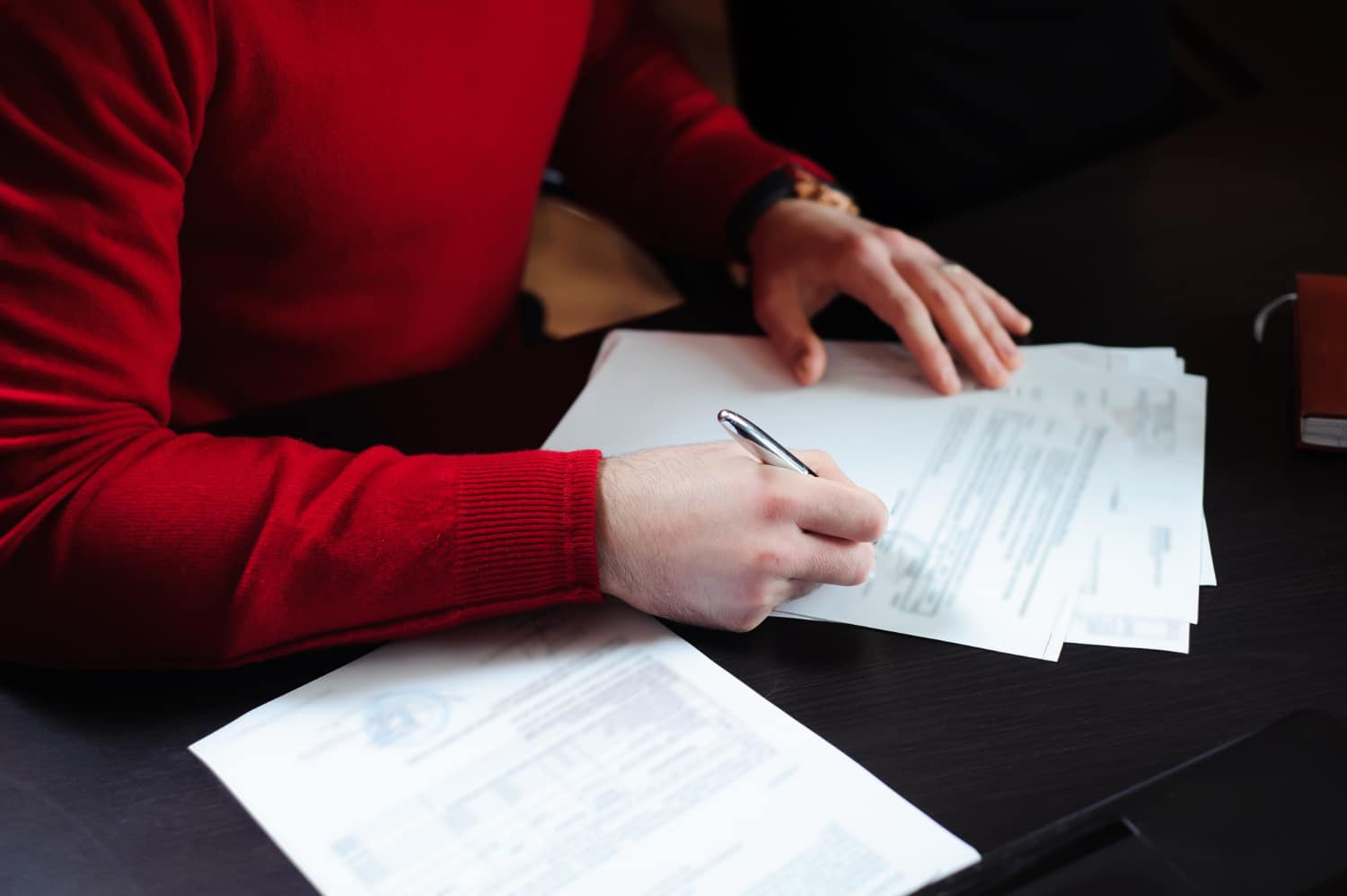
If you’re stepping into the big leagues of offshore banking, you’re going to need a “Letter of Intent.” This isn’t just any letter – it’s your formal announcement to the world (or at least to the bank) that you mean business and you’re ready to open that account.
A Not Just Any Letter, It’s THE Letter
So, this isn’t like signing up for a credit card at your local mall. This is big-time international banking, and that means the Letter of Intent is king. You sign it, get that signature notarized (very important!), and it’s almost like your passport to global banking.
Lay it out! Savings, checking, investment? Spell it out clearly.
Be upfront. Is this account for your business deals, some smart investments, or just keeping your money safe? Tell them.
How are you going to fund it? Be transparent about where the money’s coming from and how you’re getting it into the account.
List out the IDs you’re handing over. Make their job easy, and they’ll make your life easy.
Some banks want the 411 on what you do for a living. It’s their way of getting to know you. So, give them a brief rundown.
To put it simply, keep your Letter of Intent clear, concise, and professional. It’s like your handshake in paper form. Make it strong, make it confident, and you’ll be banking offshore in no time.
Frequently Asked Questions

What exactly is Offshore Banking?
Offshore Banking refers to keeping your money in a bank account outside your home country – think of it as a financial strategy that smart businessmen and savvy investors use. It’s not just for the jet set or shadowy figures in spy movies. No, it’s a legitimate way to manage your wealth, with the added perks of privacy, diversification, and potentially better interest rates. It’s banking without borders.
Is “Offshore Banking” only for the wealthy?
Absolutely not. While it’s true that “Offshore Banking” has a reputation for being a playground for the rich, today’s financial landscape has changed. With online banking and global connectivity, even regular investors are joining the club. It’s about smart financial moves, not just deep pockets.
What Are The Benefits Of Offshore Banking?
Offshore Banking can open up a world of opportunities. We’re talking about favorable interest rates, currency play, and risk management. It’s a smart move – you can diversify your assets, protect your wealth, and sometimes even reduce your tax burden, all within the bounds of the law.
Is it complicated to open an “Offshore Bank Account”?
It used to be a bit of a song and dance – lots of paperwork, background checks, and sometimes an actual trip to the bank. But now, it’s simpler than ever. Many “Offshore Banks” offer online applications, and they’re user-friendly. Just make sure you comply with the legal requirements – it’s a breeze when you do it right.
How safe is my money in an Offshore Bank Account?
Your money’s safety hinges on choosing the right bank and jurisdiction. Look for stable countries with strong legal frameworks protecting your assets. And remember, “Offshore Banking” isn’t about hiding money, it’s about diversifying and protecting it. Choose wisely, and your money will be as safe as in any top-notch bank at home.
What exactly is offshore banking and who can benefit from it?
Offshore banking refers to managing your finances in a bank located outside of your country of residence, often in a low-tax jurisdiction. It’s not only for the elite or businessmen, anyone looking to diversify their currency holdings, seeking better interest rates, or requiring international financial flexibility can benefit from offshore banking.
Are there any legal considerations to be aware of with offshore banking?
Yes, there are stringent legal considerations to keep in mind. Offshore banking must be done in full compliance with the tax laws of both your home country and the offshore jurisdiction. Missteps can lead to severe penalties, including fines and criminal charges. It’s crucial to ensure all activities are legitimate and reported as required by law.
How does offshore banking offer privacy and discretion?
Many offshore banks offer greater privacy and discretion compared to domestic banks. They often have strong secrecy laws and are less likely to disclose account details, making them appealing for those who prioritize confidentiality in their financial dealings. However, this does not extend to protecting illegal activities, banks will comply with legal investigations.
Can offshore banking provide any tax advantages?
While offshore banking in itself does not provide a way to evade taxes, certain jurisdictions offer low or no tax on capital gains, interests, and inheritances, which can be advantageous for wealth management. It’s essential to navigate these benefits legally, with proper advice from a financial advisor or lawyer
Why might a business engage in offshore banking and what are the benefits?
Businesses engage in offshore banking to facilitate international trade, secure better financing rates, and manage currency exchange risks. Offshore banks can provide services like immediate fund transfers and flexible credit lines which are critical for smooth international business operations. Additionally, offshore corporations can benefit from the favorable tax regimes of certain jurisdictions, aiding in efficient corporate financial planning.
The Bottom Line

Offshore banking? It’s incredible, really something special. We’re talking about big league benefits that can only be described as, well, tremendous. You get to diversify your assets – it’s like picking the best players for your team, and I always pick the best, believe me. You’re playing in a global league now, with access to investments that, frankly, most people can only dream of.
Now, about taxes – and I know a thing or two about taxes – it’s about paying what you owe but not a penny more. It’s completely legal, and it’s smart. You know it, I know it, everybody knows it. And privacy? Offshore banks know how to keep a secret, possibly better than anyone.
Your wealth needs to be protected, it needs a wall. And offshore banks, they build walls around your wealth. Nobody gets in without your say-so. It’s about having a financial strategy that’s so good, so smart, that you’re always winning. And that’s what life’s about, right? Winning.
For those living the jet-set life, having offshore accounts is as essential as having a private jet. And let’s be honest, it’s a beautiful thing to have control over your money. That’s freedom. That’s the American dream.
But hey, let’s be clear – you’ve got to do it right. Get the best people. Do it legally. Don’t even think about cutting corners because you’ve got to play the game like a champ. That’s how you stay on top.






